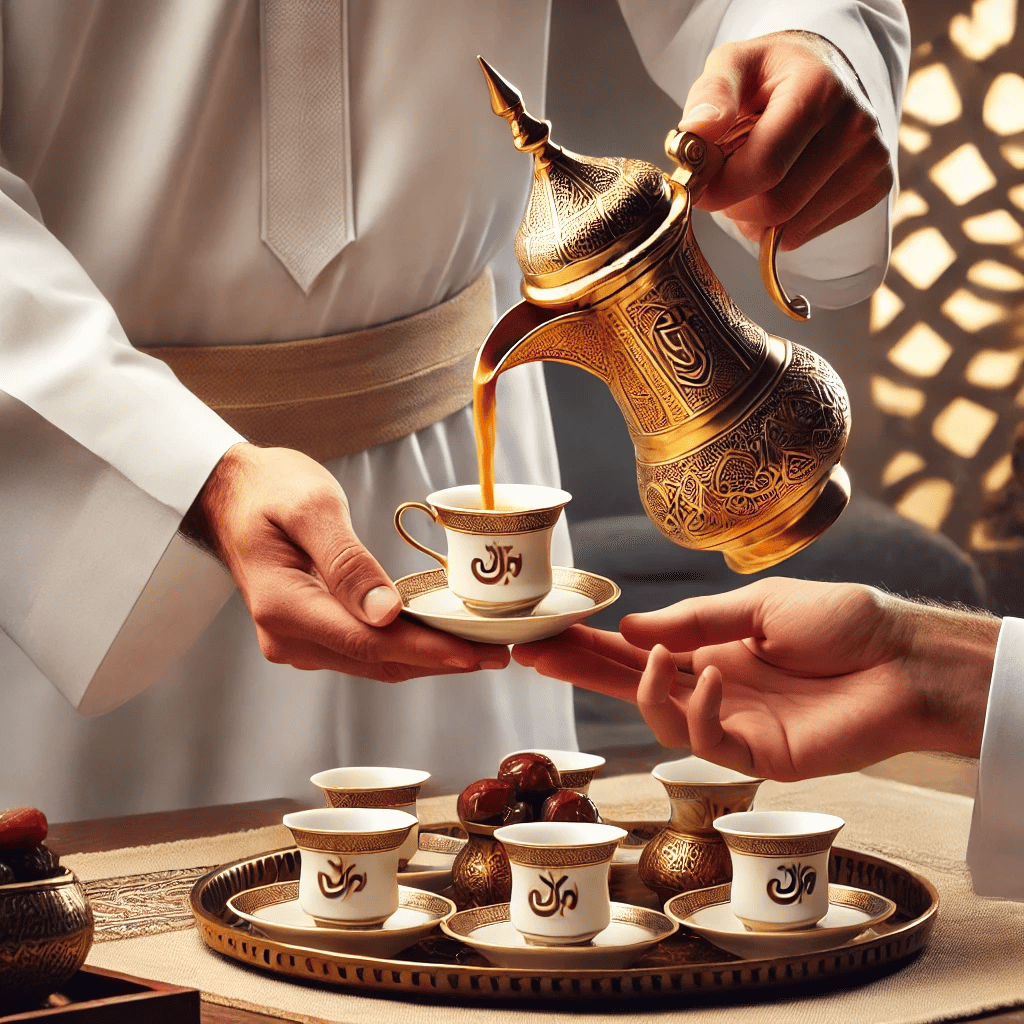

Arabic coffee, known as “qahwa” (قهوة عربية), is a traditional coffee preparation in the Arab world, particularly in the Arabian Peninsula. It is made from lightly roasted Arabica coffee beans and is often flavored with cardamom, saffron, cloves, or cinnamon, giving it a distinctive aroma and taste.
Serving Arabic coffee (qahwa) is a ritual deeply rooted in Arab hospitality and traditions.
In private aviation, Arabic coffee (qahwa) service is a symbol of luxury, respect, and cultural tradition. It must be executed with precision, elegance, and cultural awareness to provide a refined experience for VIPs and high-net-worth individuals.
Here’s a step-by-step guide:
1. Prepare the Coffee
• Brew lightly roasted Arabica coffee with cardamom (and optionally saffron, cloves, or cinnamon) in a dallah (traditional coffee pot).
• Let it simmer but not boil, ensuring the flavors are well infused.
2. Use Proper Cups (Finjan - فنجان)
• Arabic coffee is served in small, handleless cups called finjan.
• The cups are typically filled only one-third full to allow for multiple servings.
3. Serving Etiquette
• Serving Tradition: It is often served with dates, dried fruits, or Arabic sweets, as it is unsweetened and is a symbol of hospitality and generosity in Arab culture.
. Arrange the dallah, finjan cups, and an elegant selection of dates, dried fruits, or Arabic sweets on a luxury serving tray (preferably silver or gold-plated).
. Ensure the dallah is polished and cups are pre-warmed for the best experience. . Luxury Touches: Use high-end finjan cups (e.g., fine porcelain or gold-rimmed) and pair with premium Medjool dates or gourmet Arabic sweets.
• Offer the cup with your right hand, ensuring the guest receives it with their right hand. Guests should receive and hold the cup with the right hand, as using the left is considered disrespectful.
• Serve elders or VIP guests first, moving in a hierarchical manner.
4. Number of Refills
• Guests can have multiple refills, but they should shake the cup gently when they’ve had enough—this signals to the server that they don’t want more.
• Continue refilling unless the guest shakes their cup.
• Never fill the cup to the top—this is considered impolite. Typically, at least three rounds are offered as a sign of generosity.
. Maintain a graceful posture, warm eye contact, and a professional yet approachable demeanor.
5. Cultural Respect
• It is customary to show appreciation after drinking by thanking the host (shukran - شكراً) or expressing enjoyment (delicious – latheeth (لذيذ)).


